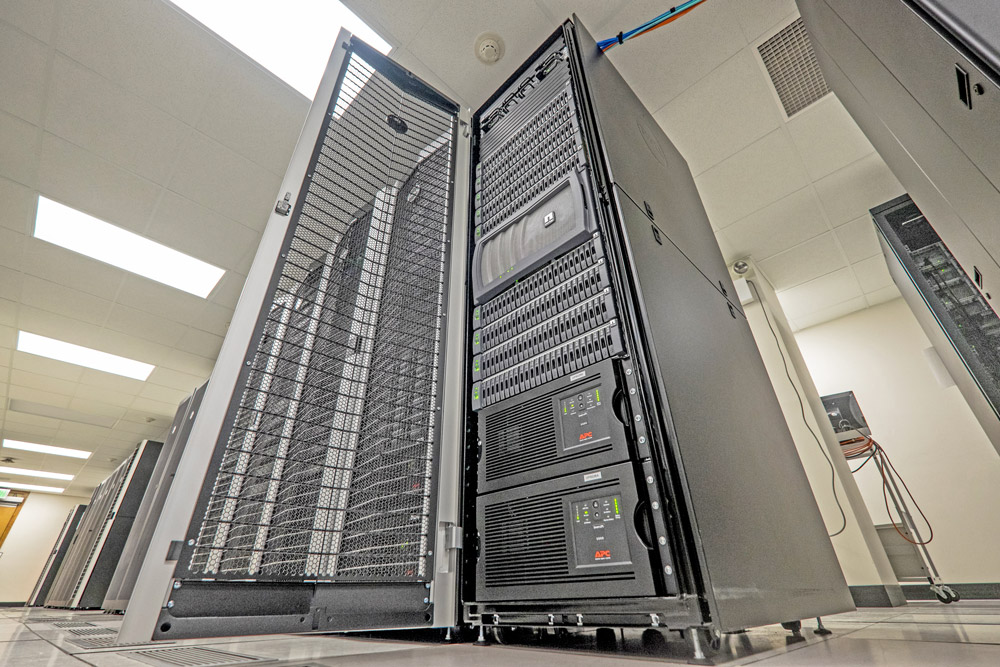MSU Information Technology provides the MSU community with network and wired and wireless Internet access on campus and in outlying MSU research centers. MSU IT also manages the MSUnet campus backbone and IP network resources.
Wired network connections are provided in offices, residence halls, lecture halls, and computer labs, as well as in common meeting areas such as libraries, study lounges, and athletic areas.
Wi-Fi access is available in all residence halls, as well as academic buildings on much of campus (including the south campus farms) to support the mobility of faculty, staff, and students.
Campus Backbone
In 2014, IT Services upgraded the campus backbone from 10 Gigabits 20Gb to meet increasing bandwidth needs on campus.
The previous 2010 campus backbone upgrade, added two carrier-class 10Gb routers in order to plan for network growth and offer new security options to departments on campus, like customized firewalls.
The campus backbone network affects network speed and continuity during outages or disasters.
Projects & Partnerships
During the summer 2016, the wired network in the residence halls was upgraded. In addition, MSU IT is working on a Network Assessment and Planning project as part of a multi-year plan to expand the wired and wireless networks across MSU
MSU IT also works with units across MSU and beyond in building their network infrastructure. Some of these joint projects have included:
- 180,000-square-foot Secchia Center medical building in Grand Rapids for the MSU College of Human Medicine.
- 22,000-square-foot MSU Detroit Center.
- Community Music School Detroit.
- Headquarters for College of Education teaching interns.
MSU also partners in several external network and data connectivity projects with other universities and organizations.
The Michigan LambdaRail (MiLR) is a high-speed network built jointly by Michigan State University, the University of Michigan, and Wayne State University, and operated by the Merit Network. MiLR provides 10Gbps Ethernet connections between researchers at the three universities and national and international connection points in Chicago.
MSU is also part of OmniPoP, which is a fiber optic network collaboration between the participating Big Ten Academic Alliance institutions that connects them to each other and to research hubs worldwide with 10Gbps connectivity.


